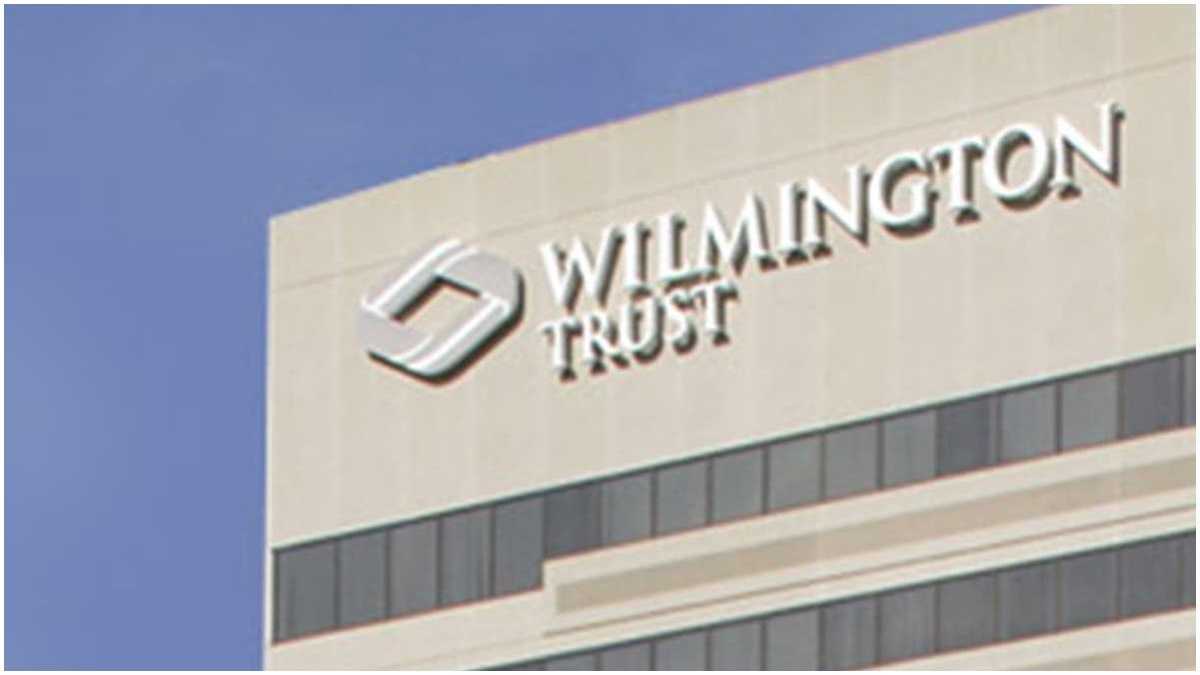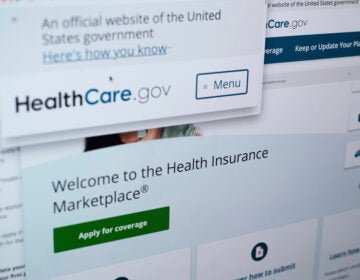Former Wilmington Trust executives indicted for conspiracy and false statements

(File/Newsworks)
More indictments were released in connection with officials at Wilmington Trust.
Four former Wilmington Trust executives were indicted Wednesday on several charges of conspiracy and false statements, according to a report released by the U.S. Attorney’s office in Delaware.
Robert V.A. Harra, 66, and David Gibson, 58, both of Wilmington, William North, 55, of Bryn Mawr, Pa. and Kevyn Rakowski, 61, of Lakewood Ranch, Fla. allegedly concealed from the Federal Reserve, the Securities and Exchange Commission and the public the amount of past due loans on Wilmington Trust’s books between October 2009 and November 2010.
The nineteen-count superseding indictment charges defendants with making false statements in securities filings and to agencies of the U.S. government.
“The failure by these individuals to properly inform regulators and investors about the true financial condition of Wilmington Trust resulted in significant harm to those investors and losses to the Delaware community,” said Charles M. Oberly, III, U.S. Attorney for the District of Delaware.
“As high-ranking bank executives, these individuals had an obligation to accurately report important financial metrics, which enable investors to make informed decisions. Even in the wake of the financial crisis, their deception was neither permissible nor excusable.”
All defendants are charged with conspiracy to defraud the U.S., to commit fraud in connection with the purchase and sale of securities and making false statements to regulators.
They also are charged with one count of false statements in connection with the purchase or sale of securities, four counts of making false entries in banking records, seven counts of making false statements to agencies of the U.S. government and two counts of making false statements in SEC reports.
Harra and Gibson are each charged with two additional counts of making false statements in SEC reports, and Gibson is charged with three counts of falsely certifying financial reports.
North and Rakowski were previously charged with two counts of making false statements to a U.S. agency, relating to the concealment from the market and the Federal Reserve the amount of past due loans on the bank’s books in October and November 2009.
Wilmington Trust was required to report in its quarterly filings with the SEC and the Federal Reserve the quantity of its loans for which payment was past due for 90 days or more. Investors and banking regulators consider the 90-day number when evaluating the health of a bank’s loan portfolio, according to the U.S. Attorney’s Office.
The four defendants allegedly helped conceal the truth about the status of Wilmington Trust’s loan portfolio from the SEC, the public and the bank’s regulators.
They also allegedly participated in Wilmington Trust’s failure to include in its reporting a material quantity of past due loans despite the reporting requirements, knowing the significance of past due loan volume to investors and regulators.
North, the bank’s chief credit officer, allegedly approved the exclusion or waiver of such loans from internal reports that he knew would be used to generate the bank’s external financial reports.
Harra, the bank’s president and head of regional banking, allegedly encouraged the waiver of past due loans. He served as a primary point of contact with the bank’s regulators during 2009 and 2010, signed bank regulatory filings, participated in quarterly earnings calls with investors and allegedly did not disclose the bank’s failure to report waived loans.
Gibson, the bank’s chief financial officer, also allegedly knew the bank had waived loans from public reporting and failed to disclose this information. He allegedly helped draft and approve SEC filings, and certified those same filings fairly presented the financial condition of Wilmington Trust.
Rakowski, a controller with the bank, allegedly approved the bank’s filings with the SEC and the Federal Reserve knowing those reports didn’t include past due loans that had been waived.
“The men and women named in this case not only hid financial details from regulators but from the general public and investors,” said Scott Hinckley of the FBI in Delaware. “These aren’t victimless crimes and those who committed them will be held accountable.”
In November 2010, Wilmington Trust was acquired by M&T Bank of New York state at a discount of about 46 percent from the bank’s share price the prior trading day.
Christy Romero, special inspector for TARP, said in a statement the defendants didn’t want to face the consequences of telling the truth about past due loans on the bank’s books. She said declining economic conditions are not a valid excuse for the defendants’ actions.
“Bankers across the nation were faced with declining economic conditions and rising past-due loans, and told the truth about those loans and losses. Bankers at Wilmington Trust did not,” Romero said.
Agencies are serious about making banks accountable, and they should view this indictment as a warning, said Mark Bialek, inspector general for the Board of Governors of the Federal Reserve System and the Consumer Financial Protection Bureau.
“Today’s indictment sends a clear message that bank executives who engage in fraud to deceive regulators and the public will be held accountable for their actions,” he said.
WHYY is your source for fact-based, in-depth journalism and information. As a nonprofit organization, we rely on financial support from readers like you. Please give today.





